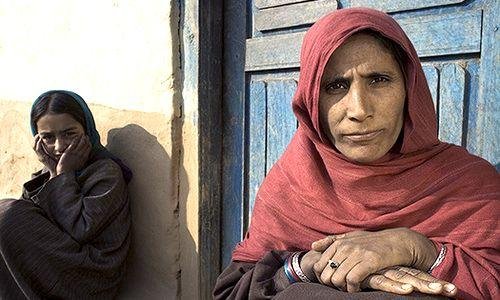Editor’s note: Parties described in mediation cases are not fully named because of the confidential nature of material disclosed in the closed-door proceedings. They are referred to by last name only because in their communities, first names are more uniquely identifiable.
SRINAGAR, KASHMIR, INDIA – Sitting under the shadow of a gigantic chinar tree in the court complex in Lal Chowk, a downtown city square, a woman in her mid-30s anxiously awaits her turn at one of Kashmir’s new mediation centers.
The woman, whose last name is Begum, is accompanied by her stepfather, who is also her paternal uncle. says She they are waiting for their village head, who has volunteered to speak at the mediation on her behalf.
In the meantime, Begum’s husband, the other party in the dispute, enters the mediation center to give his side of the story. As he discusses their marital issues with the mediator, his wife barges into the room and interrupts him. Sofiya Muzamil, the mediator, asks her to stop.
“This is a routine affair here,” says Muzamil, who is also an attorney. “Often parties [in] dispute engage in verbal brawl. Sometimes they turn violent, and same leads to a scuffle between them. In latter case, police is to be called in.”
Muzamil says that after both parties meet with the mediator, there are joint and individual follow-ups.
“Various sessions – joint and individual – are held to resolve matter amicably,” she says. “Feasible options are explored.”
The Begums are at the mediation center to discuss their marriage. They were married 12 years ago, and the husband is angry that they still don’t have any children, Muzamil says.
“Her husband pleads it as one of the grounds for divorce, whereas Begum says her mother-in-law ill-treats and harasses her,” Muzamil says.
Rebutting these allegations, the husband retorts that his wife is short-tempered, which leads to frequent disputes.
Abdul Rehman, the village head here to speak on behalf of the wife, tells the mediator that the case came before a local village committee a few years ago. The committee asked the husband to pay her five lakh rupees ($9,100) as compensation because he wanted to divorce her.
“But he didn’t agree,” Rehman says. “He said that he can pay one and half lakh rupees only, but that wasn’t acceptable to us. I wanted the same to be a deterrent for others. Then a case was filed in court, where it lingered for years.”
He says that they eventually opted for mediation to hasten the resolution process.
“During this time around, we came across mediation center, which is believed to lead towards speedy justice,” he says. “We expect early disposal of [our] case.”
The mediator says that she has explored various aspects of the dispute and listened to both sides.
“The matter isn’t finally resolved, but all factors are heading towards their divorce,” Muzamil says.
Citizens with more education and awareness of their rights are turning to the state’s newly established mediation centers to hasten the judicial process. Because of a backlog of cases, courts send those concerning issues such as property and divorce to the rising number of centers. Mediators say the overall response of citizens has been favorable, though some lawyers call the process fruitless.
There are now 14 district mediation centers in the state, according to the annual report of the Mediation Monitoring Committee, which is responsible for their functioning.















